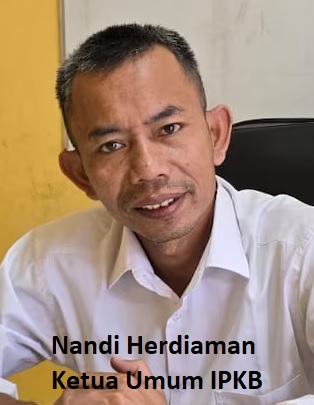The national textile industry asks the government to immediately implement trade security measures or safeguards from the invasion of imported clothing products. The textile ecosystem will try to improve domestic competitiveness during the implementation of the safeguard.
Chairman of the Indonesian Textile Association (API) Jemmy Kartiwa explained that the implementation of safeguards was prioritized to stem the flood of products from other countries. Specifically, the security is aimed at fabric products.
"This fabric safety guard will not last forever, the purpose of API and APSyFI is also to fix (technically) inside and out," he explained.
Jemmy also continued to explain that external improvements include conditions other than technical textile manufacturing that have an impact on the ecosystem as a whole. He will try to help the government clear up regulations whose implementation in the field has not been equal. Such as gas and electricity prices, as well as other regulations that are considered more stringent than other industries. Likewise, the regulation of trade activities or product entry through online and offline channels.
Meanwhile, industry players will also carry out improvements to the ecosystem. Steps to improve HR in the company will be taken in collaboration with many parties. Don't forget to revitalize the machinery side.
Thus, optimizing the export market for clothing products in the world, which continues to grow from time to time, by relying on small and medium industries in the country.
"That's why we have to clean up first to give our industry opportunities. I said several times before IKM can export, we must be able to dominate the domestic market first," he explained.
Moreover, the domestic market is so large that it can be maximized and optimized.
Regarding exports by SMEs, the intended improvements include training on product quality, design, and on time delivery. Only after that, it is hoped that IKM will be able to taste such a wide product market share in the global market.
In addition to facing the onslaught of imported products, currently the textile and textile product industry must also face other challenges in penetrating exports to the world. Because there are significant differences in Indonesia's logistics costs compared to other competing countries.
For example, with India where the logistics costs are cheaper. In July 2020, every 40 ft container India shipped to Europe was only US$1,100. Meanwhile, the same delivery from Jakarta to Istanbul, Turkey costs up to US$2,200.
Moreover, the pandemic conditions have also changed the world's logistics landscape to be more expensive than before. As of May 2021, the same shipment from Jakarta to the same destination touched US$13,300, while India was only US$3,825.
“It is time for us to improve and to compete in the export market. All countries must have the textile industry trying to export," he said.
The price difference has an impact on the selling price of the product at the consumer level. Consumers in the destination country do not want to know which country their products come from, but what is more important is to get a low price.
This condition makes the difference between Indonesian and Indian products can be very high. Therefore, making Indonesian products less competitive.
“The difference used to be only US$5 cents, now it's US$20 cents. With differences like that, we have to spin our brains to suppress efficiency in various ways, it is also not easy because it is very significant," he said.








